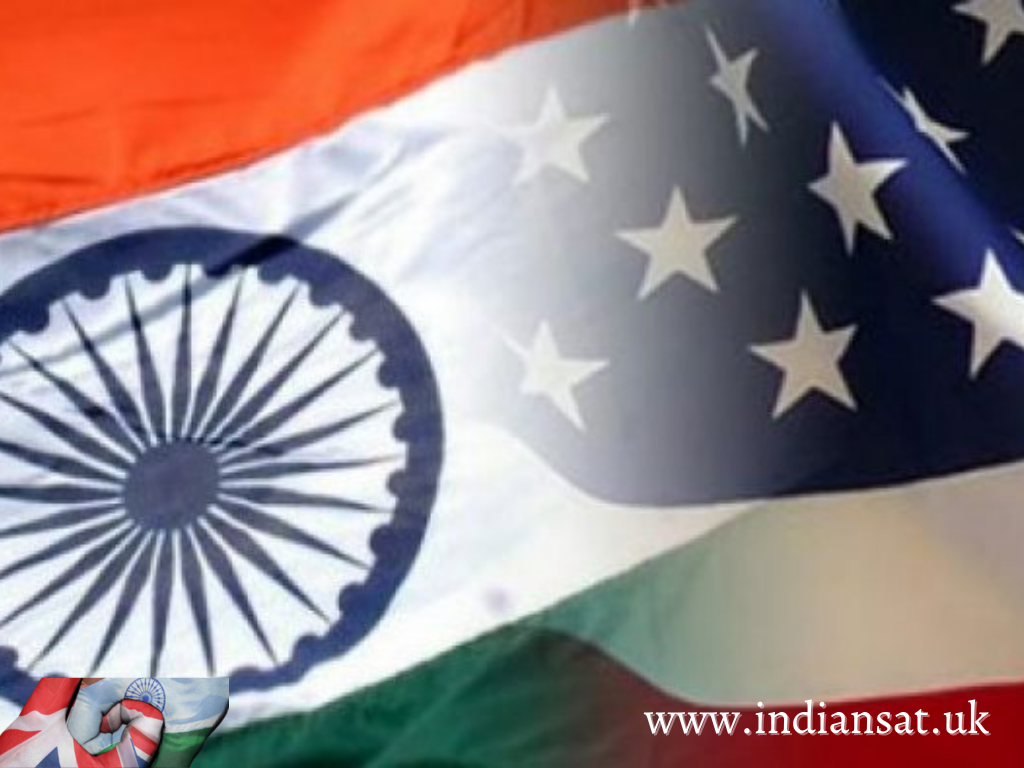Almost unnoticed in the ferocity of the current Covid surge battering us, India’s foreign policy pivoted westwards, embracing partners and relationships that, if taken at the flood, could have interesting implications for India’s future.
A Quad leaders’ summit in March drew the curtains from the new focus. For years the Indian system downplayed the importance of the Quad giving it some sort of an airy-fairy feel. It took the reality check of a Chinese virus coupled with a Chinese invasion for the Indian system to smell the coffee. The Quad summit was a seal on the India-US relationship, and a determined statement of how India sees its future with China.
In the past month, India took two big steps: Crafting a post-Brexit relationship with the UK and putting its shoulder to the wheel of the India-Europe relationship. For both, improved trade is the bedrock. It’s even more important for India. After turning its nose up at RCEP in 2019, India has been in a somewhat forlorn space. The word in the government then revolved around moving on bilateral trade deals, attracting more investment and looking to the EU, UK and US. As the pandemic hit, calls for Atmanirbhar Bharat and resilient supply chains became the dominant narrative. Meanwhile, even a mini trade deal with the US proved elusive.
Taking advantage of Brexit, therefore, was very important. The enhanced trade partnership between India and the UK will start with market access to CBMs before graduating to an FTA. With the EU, the two sides have to pick up the threads from 2013 – the world has changed since then – and hopefully close the gap on an FTA before we’re much older.
The investment protection deal is likely to be easier, involving basically an exchange of texts and bridging the gaps, particularly on things like international arbitration. The FTAs should be preceded by an effort to build domestic consensus on the big issues: Goods, services, agriculture, government procurement; work on genuine ease of doing business, not a World Bank list; find that sweet spot between creating a level-playing field for domestic industry and pandering to political favourites etc. The prep for an international agreement is at home.
Frankly, an India-EU FTA has been flogged for so long, there is a palpable lack of excitement this time, which perversely may be a good thing. The UK deal is likely to be much faster because of vested interests on both sides. The EU is different – much more rigid and more demanding of reciprocity, determined to leverage its strengths more than ever. The beginning has been promising – it was India that demonstrated flexibility in the talks that made resumption possible. Actually, a good template for the upcoming negotiations should be the India-US nuclear deal, which proved to be transformational in its impact. For the first time, India had looked beyond the immediate give to a much larger possibility, which had helped to cross the bar.
India’s western pivot has been a long while coming. For years, India has treated the EU as an anomaly, preferring to build independent ties with France, Germany, the UK etc. Few things changed – Brexit cast off a big chunk of India’s engagement. Second, PM Modi’s interest in things like clean water, sanitation, smart cities naturally gravitated interest towards European countries that had solutions on tap. Third, India latched on to climate change as a leap-frogging opportunity, particularly after the Paris Accord.
France has become India’s go-to partner in Europe, cutting across sectors such as defence, strategic, nuclear and multilateral spheres, to the extent that it can almost replace Russia. The Nordics are India favourites in areas like smart cities, 5G, AI and semiconductors. Outside the EU, the UK, with which India never quite severed its umbilical ties holds enormous promise.
The West – US and Europe collectively – was instrumental in the growth of China. Their idea was a prosperous China would become a more democratic China, not a threatening China. Today, an EU-China trade deal is hanging fire because China is seen to be a strategic challenge to the West. China’s BRI reaching up to Europe’s door is dividing Europe. Hong Kong, Uighurs, the Dalai Lama, Taiwan, South China Sea are bad enough, the fact that China is bidding fair to eating the West’s lunch is a bigger source of concern. China was given a lot of wiggle room to remain authoritarian with little cost.
The West is not about to repeat that experience. So India should not expect that its transformation as a result of its engagement with the EU, US and UK will be anything but hard won. That is recognised in New Delhi – one of the more clever moves by India was to resume a human rights dialogue with Europe in April. This makes many difficult conversations much easier.
India is already a robust democracy (some European institutions may contest that) and a market economy. India can leverage a lot of its strengths: Technology advances; a western-oriented pool of 21st century talent; a climate change believer. At current rates, India, aiming for 450GW in renewable energy would single-handedly move the needle on global climate change goals. As a member of the Quad and at the geopolitical heart of the Indo-Pacific, India is a strategic opportunity for the West.
In these months, India has shown the underbelly of its governance model. In our collective gasp for oxygen, our daily death count, the current Covid surge has exposed every failure in the Indian governance structure: political, structural, functional – and moral. That should change.
![]()






